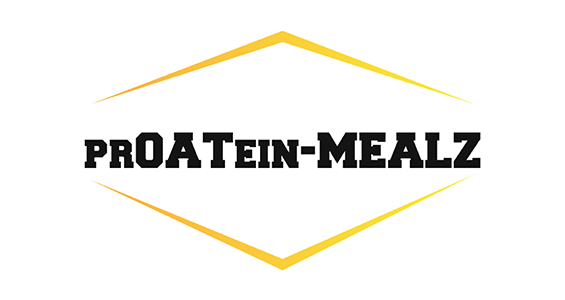As we journey through life, our bodies undergo various changes, and with each passing year, our nutritional needs evolve. One critical component that becomes increasingly important as we age is protein. Often overlooked, protein plays a vital role in maintaining our health and vitality, especially as we navigate the aging process. Let's delve into why protein is crucial as we age.
Why Protein Is Crucial As We Age
1. Muscle Mass Preservation
As we age, our bodies naturally undergo muscle loss, a process known as sarcopenia. This decline in muscle mass and strength can lead to frailty, increased risk of falls, and a loss of independence. Adequate protein intake, combined with resistance training, helps preserve muscle mass and function, allowing older adults to maintain their mobility and quality of life.
2. Wound Healing and Immune Function
Protein is essential for tissue repair and wound healing, which becomes increasingly important as we age. Additionally, proteins play a vital role in supporting a robust immune system, helping our bodies fend off infections and illnesses that can become more prevalent with age.
3. Bone Health
Maintaining strong and healthy bones is crucial for preventing osteoporosis and reducing the risk of fractures, which become more common as we get older. Protein, along with adequate calcium and vitamin D intake, supports bone health by contributing to bone density and strength. Incorporating resistance training is also important in maintaining strong bones.
4. Metabolic Health
Protein has a higher thermic effect compared to fats and carbohydrates, meaning it requires more energy to digest and metabolize. This can help support weight management and metabolic health, both of which are important considerations as we age and become more susceptible to conditions like obesity and metabolic syndrome.
5. Appetite Regulation
Older adults often face challenges related to appetite and food intake, whether due to decreased taste sensation, dental issues, or medication side effects. Protein-rich foods can help promote satiety and prevent muscle wasting, making them an essential component of the diet for older individuals.
6. Nutrient Absorption
Adequate protein intake is necessary for optimal nutrient absorption, including vitamins and minerals critical for overall health. Older adults may have reduced absorption capacity, making it even more important to prioritize protein-rich foods to ensure they're meeting their nutritional needs.
7. Chronic Disease Management
Certain chronic conditions, such as diabetes, cardiovascular disease, and kidney disease, become more prevalent with age. Protein plays a role in managing these conditions, supporting blood sugar control, heart health, and kidney function when incorporated into a well-balanced diet.
PROTEIN RICH FOOD SOURCES
ANIMAL PROTEIN
- Lean Red Meat: Beef, Bison, Elk (sirloin or round cuts, greater than 93% lean ground beef).
- White Meat Poultry: Chicken or Turkey breast.
- Fish: Salmon, Trout, Mackerel, Herring, Sardines and Tuna.
- Eggs: Whole eggs and egg whites.
- Dairy: Milk, Non Fat/Low-Fat Greek Yogurt, Cottage Cheese.
- Protein Powder: Whey protein, Casein protein, Beef protein.

VEGAN PROTEIN
- Nuts & Seeds: Walnuts, Almonds, Cashews, Chia Seeds, Flax Seeds, Hemp Seeds, Sunflower Seeds, and Pumpkin Seeds.
- Legumes: Black beans, Pinto beans, Chickpeas, Kidney beans, Lentils, Peas.
- Soy Products: Tofu, Tempeh and Seitan.
- Grains: Quinoa, Oats, Brown rice, Amaranth, Spelt, Teff and Millet.
- Non Dairy Milk: Soy and Pea milk.
- Protein Powder: Pea protein, Hemp protein, Pumpkin Seed protein, Brown Rice protein, Soy protein, Sunflower Seed protein, Chia protein, Sacha Inchi protein.
SUMMARY
In conclusion, protein is a fundamental nutrient that becomes increasingly important as we age. From preserving muscle mass and supporting immune function to promoting bone health and aiding in metabolic regulation, the benefits of adequate protein intake for older adults are numerous. By prioritizing protein-rich foods as part of a balanced diet, individuals can better support their overall health and well-being as they navigate the aging process.

